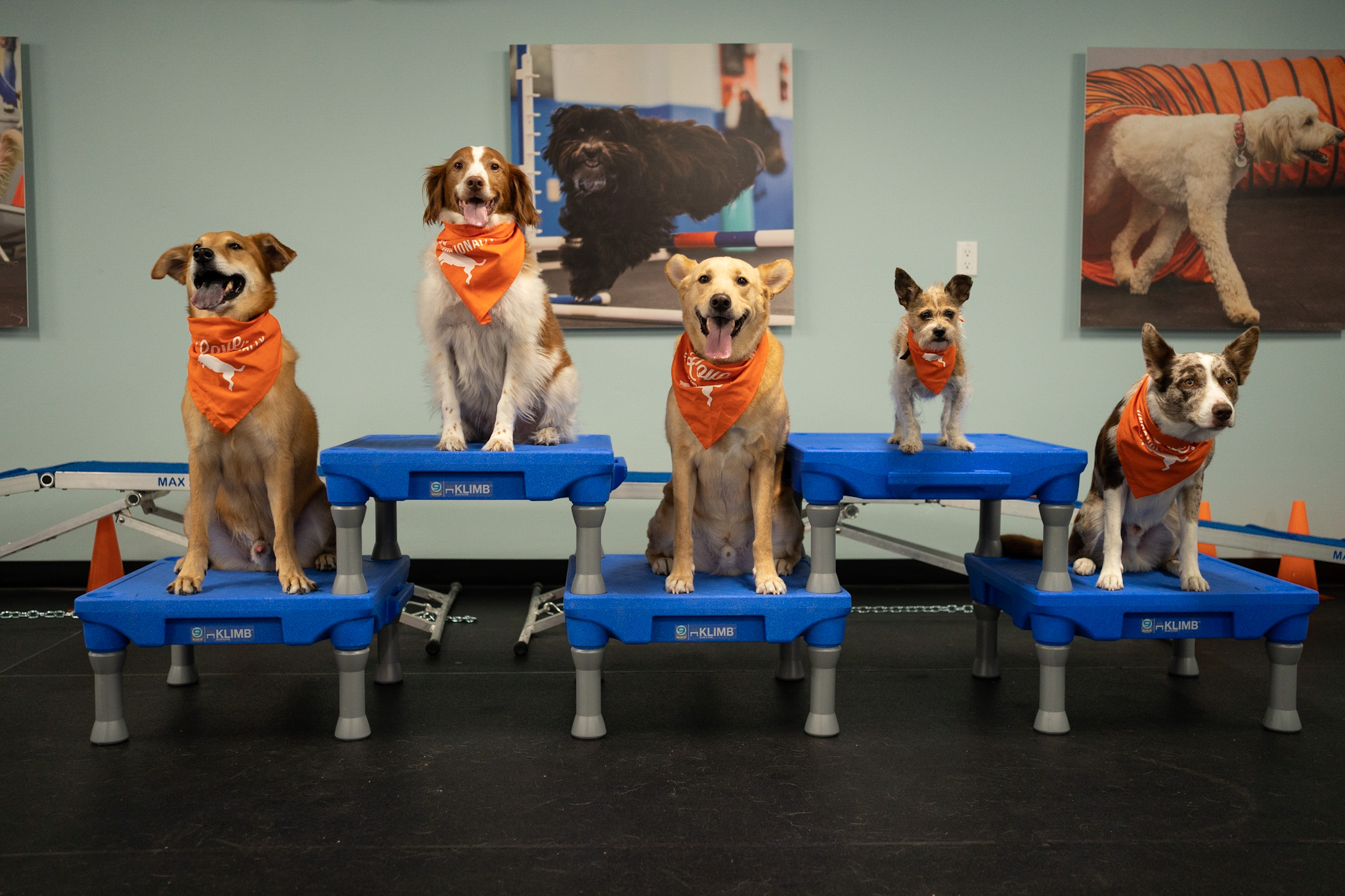Boost Your Skills with Local Dog Training Charlotte Programs
Boost Your Skills with Local Dog Training Charlotte Programs
Blog Article
Unlock Your Pet dog's Possible: Proven Pet Training Strategies for Success
Efficient canine training is a nuanced process that pivots on comprehending canine behavior and using clinically backed techniques. By incorporating positive support, developing clear commands, and focusing on socialization, dog proprietors can grow an efficient relationship with their pet dogs.
Comprehending Dog Actions
Comprehending dog actions is crucial for efficient training and fostering a favorable connection between pet dogs and their owners. A detailed grasp of canine body movement, articulations, and social communications is crucial for identifying their feelings and requirements. Dogs connect mostly via non-verbal hints; for example, a wagging tail might indicate exhilaration, while pinned ears can indicate fear or entry.

Moreover, environmental factors play a substantial duty in forming a pet dog's habits. Changes in routine, brand-new environments, or the existence of unfamiliar individuals can bring about stress and anxiety or stress and anxiety in canines. Recognizing these triggers enables proprietors to alleviate unfavorable reactions and create proper training techniques.
Ultimately, a deep understanding of pet habits lays the foundation for effective training techniques, improving both actions and the general bond in between the pet dog and its owner. Dog training. This expertise is crucial for promoting a well-adjusted, happy canine friend
Positive Support Techniques
Reliable training depends greatly on positive support methods, which have actually been shown to generate considerable cause shaping wanted habits in dogs. This technique involves awarding a dog for displaying specific habits, therefore enhancing the chance that these habits will certainly be repeated. Benefits can take numerous forms, consisting of deals with, praise, toys, or play, depending on what inspires the specific dog.

It is important to slowly terminate benefits as the dog learns the actions, transitioning to periodic reinforcement. This method preserves the behavior with time while protecting against dependency on consistent benefits. By concentrating on positive reinforcement, instructors can grow a relying on partnership with their pet dogs, advertising a participating and healthy and balanced training environment that improves general obedience and efficiency.
Developing Consistent Commands
A basic facet of effective dog training is the establishment of consistent commands. Consistency in commands is important for effective interaction in between the instructor and the pet. When commands are consistent, pet dogs discover to associate particular words with preferred actions, which speeds up the training process and boosts understanding.
To establish consistent commands, it is important that all relative utilize the same terms and gestures. As an example, if a single person utilizes "rest" while one more claims "take a seat," it can produce complication for the pet. Select clear, unique words for commands and guarantee every person included in the pet's training abides by these choices.
Enhance commands with regular technique, ensuring that the pet obtains enough opportunities to her response respond appropriately. When a dog successfully follows a command, prompt positive reinforcement ought to adhere to.
Finally, be patient. Establishing constant commands takes time and initiative. With dedication and clearness, you will aid your pet dog create a solid understanding of assumptions, eventually resulting in a well-behaved friend.
Socializing and Direct Exposure
Mingling a pet dog is essential for cultivating a well-adjusted and confident friend. This process includes exposing your pet to a range of environments, people, and various other animals to develop their social skills and flexibility. Early socialization, preferably in between the ages of 3 to fourteen weeks, is vital, as it prepares for a pet dog's future habits.
During socialization, goal to give positive experiences in different setups, such as parks, active roads, and homes with various other animals. Introduce your canine to different stimulations, consisting of noises, sights, and scents, making certain that each encounter is satisfying. This exposure helps minimize fear and stress and anxiety, leading the way for an extra durable dog.
Engaging in regulated team play sessions with other pet dogs can also boost social abilities, try this web-site instructing your pet appropriate interactions and boundaries. Prioritizing socializing will considerably contribute to your dog's general happiness and actions throughout their life.
Conquering Common Educating Challenges

One more constant issue is distraction. Pet dogs may struggle to focus in busy or unknown setups. Gradually desensitize your dog to distractions by beginning training in a silent setting and gradually presenting more stimulations as they come to be skilled (dog training charlotte nc). Favorable support techniques, such as treats and appreciation, can keep motivation and emphasis.
In addition, behavioral issues like jumping or too much barking can come to be frustrating. Address these by instructing alternative actions, such as sitting smoothly when greeting guests. Consistency and perseverance are important; reinforce wanted habits constantly and stay clear of scolding, which can result in complication.
Finally, recognize that each canine is distinct, and training timelines may have a peek at this website differ. Tailor your method to your dog's private demands, and seek expert support if essential. With determination and the best strategies, getting over these difficulties can bring about a trained, delighted canine friend.
Conclusion
Finally, opening a dog's possible necessitates a detailed method that incorporates an understanding of canine behavior, the application of positive reinforcement methods, and the establishment of constant commands. Early socializing and direct exposure to varied atmospheres better boost a pet's flexibility and self-confidence. By dealing with typical training difficulties with customized strategies and patience, a harmonious and cooperative connection between canine and handler can be cultivated, inevitably causing a well-behaved friend efficient in flourishing in numerous circumstances.
Effective pet training is a nuanced process that hinges on recognizing canine habits and employing clinically backed methods.Comprehending dog habits is crucial for efficient training and promoting a favorable relationship in between pets and their proprietors.Effective training counts heavily on positive support methods, which have been shown to produce significant outcomes in shaping wanted behaviors in pet dogs. When commands are consistent, pet dogs learn to associate details words with preferred behaviors, which increases the training procedure and boosts understanding.
In verdict, opening a pet's possible demands a thorough approach that integrates an understanding of canine actions, the application of favorable support methods, and the establishment of consistent commands.
Report this page